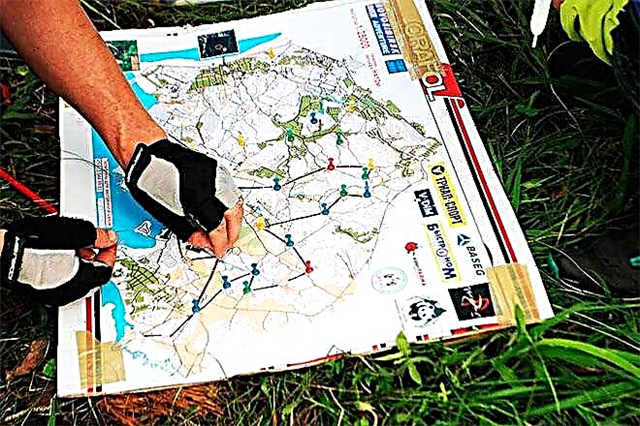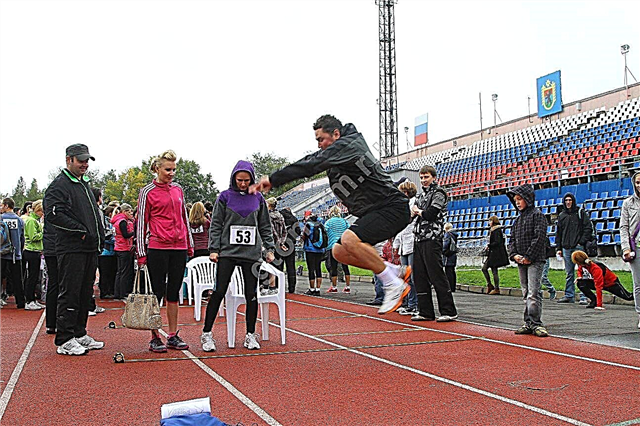Sprint distances have always been the most popular and spectacular running disciplines in athletics, and the names of the winners are on everyone's lips.

And it is no coincidence that the first Olympic sports competition in Ancient Greece was the sprint race in 1 stage (192.27 m), and the name of the first winner, Koreb, has been preserved for centuries.
Etymology of the word "sprinter"
The word "sprinter" is of English origin. The word "sprint" in English originated in the 16th century. from the Old Icelandic "spretta" (to grow, break through, hit with a stream) and meant "to make a leap, jump." In its modern meaning, the word has been used since 1871.
What is a Sprint?

Sprint is a competition at a stadium in the program of athletics running disciplines:
- 100 m;
- 200 m;
- 400 m;
- relay race 4 × 100 m;
- relay race 4 × 400 m.
Sprint running is also part of technical disciplines (jumping, throwing), athletics all-around and other sports.
Official sprint events take place at World Championships, Olympic Games, National and Continental Championships, and local commercial and amateur competitions.
Competitions at non-standard distances of 30 m, 50 m, 55 m, 60 m, 300 m, 500 m, 600 m are held indoors, as well as at school and student championships.
Sprint Physiology
In a sprint, a runner's main goal is to reach top speed quickly. The solution to this problem depends largely on the physiological and biological characteristics of the sprinter.
Sprint running is anaerobic exercise, that is, the body is supplied with energy without the participation of oxygen. At sprint distances, blood does not have time to deliver oxygen to the muscles. Anaerobic alactate breakdown of ATP and CrF, as well as anaerobic lactate breakdown of glucose (glycogen) becomes the source of energy for the muscles.
During the first 5 sec. during the starting run, the muscles consume ATP, which was accumulated by the muscle fibers during the rest period. Then, over the next 4 seconds. the formation of ATP occurs due to the breakdown of creatine phosphate. Next, anaerobic glycolytic energy supply is connected, which is enough for 45 seconds. muscle work, while forming lactic acid.
Lactic acid, filling muscle cells, limits muscle activity, maintaining maximum speed becomes impossible, fatigue sets in, and running speed decreases.
Oxygen energy supply begins to play an important role in the period of recovery of the reserves of ATP, KrF and glycogen spent during muscular work.
Thus, thanks to the accumulated reserves of ATP and CrF, muscles can perform work during maximum loads. After the finish, during the recovery period, spent supplies are restored.
The speed of overcoming the distance in the sprint is significantly influenced by the number of fast muscle fibers. The more of them an athlete has, the faster he can run. The number of fast and slow twitch muscle fibers is genetically determined and cannot be changed through training.
What short distances are there?

60 m
The 60 m distance is not Olympic. Competitions at this distance are held at world and European championships, national and commercial competitions in the winter, indoors.
The race is held either at the finish line of a 200-meter track and field arena, or from the center of the arena with additional markings for a distance of 60 meters.
Since the 60m race is fast, a good starting reaction is an important factor at this distance.
100 m
The most prestigious sprint distance. It is carried out on the straight section of the stadium running tracks. This distance has been included in the program since the first Olympiad.
200 m
One of the most prestigious distances. Included in the Olympic program since the second Olympics. The first 200m World Championship was held in 1983.
Due to the fact that the start is on a bend, the length of the tracks is different, the sprinters are placed in such a way that each participant in the race runs exactly 200 m.
Overcoming this distance requires high cornering technique and high-speed endurance from sprinters.
Competitions at 200 meters are held in stadiums and indoor arenas.
400 m
The most difficult track and field discipline. Demands speed endurance and optimal distribution of forces from sprinters. Olympic discipline. Competitions are held in the stadium and indoors.
Relay races
Relay is the only team event in track and field athletics, which takes place at the Olympic Games, European and World Championships.
World records, in addition to Olympic distances, are also recorded on the following relay races:
- 4x200 m;
- 4x800 m;
- 4x1500 m.
Relay races are held in open stadiums and arenas. Competitions are also held in the following relay distances:
- 4 × 110 m with barriers;
- Swedish relay;
- relay race along the city streets;
- cross relay race on the highway;
- cross-country relay races;
- Ekiden (marathon relay).
Top 10 sprinters on the planet

Usain Bolt (Jamaica) - nine-time winner of the Olympic Games. World record holder for 100 m and 200 m;

Tyson Guy (USA) - Winner of 4 gold medals of the world championship, winner of the Continental Cup. Second fastest sprinter at 100 m;

Johan Blake (Jamaica) - Winner of two Olympic gold medals, 4 world championship gold medals. The third fastest 100m runner in the world;
Asafa Powell (Jamaica) - Winner of two Olympic gold medals and two-time world champion. 4th fastest sprinter at 100m;
Nesta Carter (Jamaica) - Winner of two Olympic gold medals, 4 world championship gold medals;
Maurice Greene (USA) - Winner of two gold medals at the Sydney Olympics at 100 m and in the 4x100 m relay, 6 gold medals of the world championship. Record holder in 60 meters running;
Weide van Niekerk (South Africa) - world champion, winner of the Olympic gold medal in Rio 2016 in the 400 meters;
Irina Privalova (Russia) -, the owner of an Olympic gold medal at the Sydney Olympics in the 4x100 m relay, 3 gold medals of the European championship and 4 gold medals of the World Championship. Winner of world and European records. World record holder in 60m indoor running;
Florence Griffith-Joyner (USA) - Winner of three gold medals at the Seoul Olympics, world champion, world record holder for 100 m and 200 m.
When qualifying for the Seoul Games Griffith Joyner exceeded the record by 100 meters at once by 0.27 seconds, and in the final of the Olympics in Seoul improved the previous record by 0.37 seconds;
Marita Koch (GDR) - the owner of the Olympic medal in the 400 m race, 3 times became the world champion and 6 times the European champion. The current holder of the 400 m record. During her sports career, she has set more than 30 world records.
The sprint distance, in which the outcome of the race is decided by fractions of a second, requires maximum output from the athlete, perfect running technique, high speed and strength endurance.









